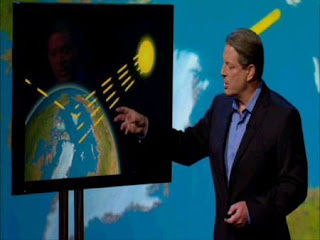Genre: Documentary
Directed: Robert Gordon & Morgaln Neville
Stars: William F. Buckley, Gore Vidal, John Lithgow, Kelsey Grammer, Dick Cavett, Noam Chomsky, Arthur Miller, Walter Cronkite, Christopher Hitchens, Matt Tyrnauer, Brooke Gladstone
Production: Media Ranch
Political documentaries are tricky things. On their face they're supposed to be persuasive. They're supposed to have a strong point of view and use a host of different techniques to form their central argument(s). As a critic, cultural observer and otherwise politically active American, I try to avoid using ad hominum attacks, baseless claims and emotional appeals when speaking with those I differ. After all, none of those tactics serve to get people closer to the truth or lacking that, some kind of compromise. Yet if all documentaries adhered to such stringent standards no one would watch them. Al Gore could have listed off and described all the scientific research in support of global climate change in An Inconvenient Truth (2006). Yet the impact of watching water levels rise and engulf New York City via computer simulation, while hyperbolic, is emotionally persuasive.
 |
| We cap our emissions by just 5%, we can finally get the Cubs to win a world series |
 |
| Ta Da! |
There were ten debates in all, thus I'm sure the issues of the day were given their due in 1968 but the film all but ignores any semblance of context. There's no deeper gleaming of the existential milieu of the time. There's little reference to the major events that surrounded the conventions nor is there any real explanation about the mechanics behind the conventions themselves and why they're so interesting by today's standards. On there rare occasion we do get nuggets of information, they're told second hand by our two subjects who flippantly add their own two cents.
 |
| You know what grinds my gears? The ERA dammit! |
But fine, I suppose in good hands you could still flesh out a neat story from the film's odd couple. After all, co-director Morgan Neville did blow people away with 20 Feet from Stardom (2013), a documentary that similarly exposes the passions, frustrations and psychology behind backup singers. Unfortunately not even the voice-over work of John Lithgow and Kelsey Grammer could flesh out and humanize the pomposity in the room. By the time the film reaches it's "smoking gun" moment, all the venom, all the contempt and all the nastiness of the debates renders the film puckishly inconsequential. Despite most secondary interviewees concluding one side won over another; it's understood we've all lost in the end.
Perhaps in a roundabout way, that was the point of Best of Enemies; the idea that our civil discourse corrodes our society's mores and makes us more inclined to speak instead of listen. Yet let's keep this in mind, Best of Enemies is a commentary on commentary, expanding on the confrontation between two commentators and using commentators to do so. It's like a Russian nesting doll of proto-reality TV hyperbole. Only it fails to truly plug itself in a context and ultimately lionizes one talking head over another. Thus this muckraking political documentary is just as unsatisfying as most.
Final Grade: D-




No comments:
Post a Comment